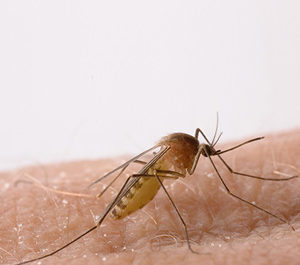ACOG Statement on Latest CDC Travel Warning and Practice Advisory
August 4, 2016
Washington, DC – Thomas Gellhaus, MD, President of the American College of Obstetricians and Gynecologists (ACOG), released the following statement on updated travel restrictions and guidance regarding areas recently affected by the Zika virus:
“In addition to the several countries and territories with active Zika transmission, pregnant women are now advised not to travel to a specific area in Miami, Fl. This is the first location within the continental United States for which the U.S. Centers for Disease Control and Prevention (CDC) has issued a travel warning. However, areas of local transmission within the country are likely to change frequently. In response to this breaking news, ACOG has released a Practice Advisory.
“Currently, transmission to the fetus has been documented in all trimesters and a new study in Obstetrics & Gynecology shows that Zika virus RNA has been detected in pregnant women beyond the previously estimated timeframe. Yet, there are still many unknowns about Zika virus in pregnancy, particularly in terms of mother-to-child or “vertical” transmission and the rate with which infected fetuses manifest complications such as microcephaly. Therefore, pregnant women and their partners who live in or travel frequently to outbreak areas should be managed as though they have an ongoing risk for Zika virus infection.
“It is important to continually focus on education about preventative measures such as the use of contraception. For example, pregnant women with sex partners (male or female) who live in or have traveled to an area with active Zika virus transmission should consistently and correctly use condoms or other barriers against infection during sex or abstain from sex for the duration of the pregnancy. It is also recommended that pregnant women and their partners strictly follow steps to prevent mosquito bites. All precautions should be taken to avoid infection, including the use of EPA-approved bug spray with DEET, covering exposed skin, staying in air-conditioned or screened-in areas, and treating clothing with permethrin.
“Even for couples in areas without active Zika transmission who are not pregnant or not planning to get pregnant, if one partner traveled to or resides in an area with active Zika virus transmission they should follow CDC recommendations for prevention of sexual transmission. The use of contraception is recommended for eight weeks after the partner departed the Zika-affected area even when asymptomatic.
“For couples who are not pregnant in which a partner has confirmed Zika virus infection or clinical illness consistent with the disease, men should use protection for at least 6 months after onset of illness and infected women should use protection for at least 8 weeks.
“New information regarding Zika emerges on a weekly, sometimes daily, basis so all pregnant women in the United States and U.S. territories should be assessed for possible Zika virus exposure at each prenatal care visit. This assessment should include a travel history of the pregnant woman and her partner, as well as an assessment of signs or symptoms of Zika virus disease, such as fever, rash, arthralgia, and conjunctivitis.
“ACOG also strongly encourages all its members to support the CDC’s U.S. Zika Pregnancy Registry, an active surveillance system of pregnant women with laboratory evidence of possible Zika virus infection. There is a CDC Zika Pregnancy Hotline for Healthcare Providers.
“Ob-gyns can contact the CDC Zika Pregnancy Hotline at 770-488-7100 or email ZikaPregnancy@cdc.gov for any concerns related to clinical management or the U.S. Zika Pregnancy Registry.
“These efforts will help gather data that is essential to understanding the range of health effects linked with infection during pregnancy, as well as which pregnancies may be at risk for poor outcomes, and put us one step closer to effectively treating and ultimately finding a cure for this epidemic.”
News courtesy of:
http://www.acog.org/About-ACOG/News-Room/Statements/2016/ACOG-Statement-on-Latest-CDC-Travel-Warning-and-Practice-Advisory




